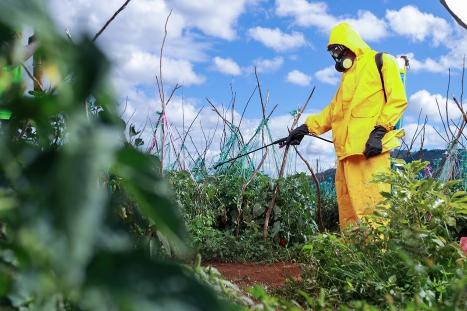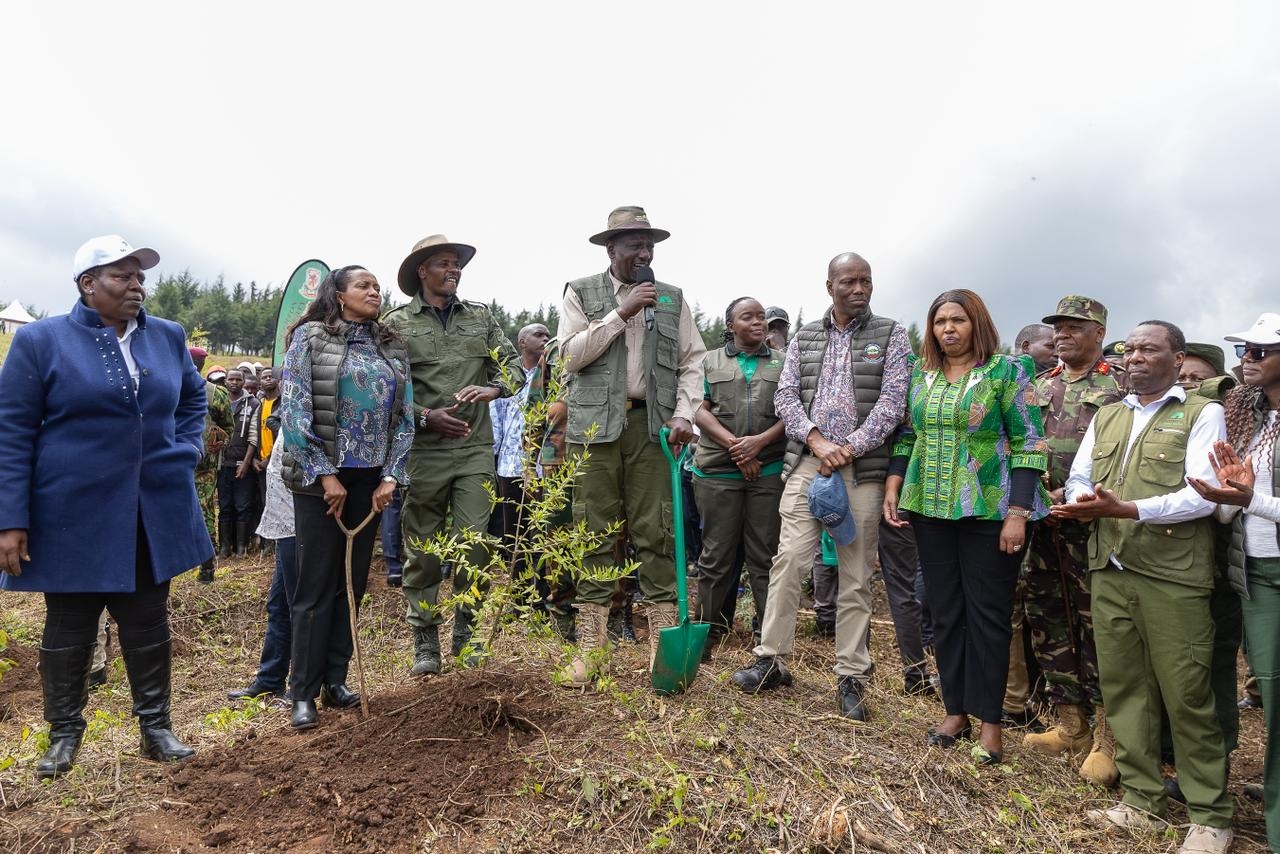

Dr Dennis Rangi, director general for Development at the Centre for Agriculture and Bioscience International /CABI.

The Ukulima True initiative addressed the importance of farmers using the right kind of personal protective equipment and the safe spraying of pesticides /CABI.
Women and youth across Kenya are emerging as champions of safer farming by embracing integrated pest management and reducing pesticide risks, a move experts say is key to achieving sustainable food security.
Dennis Rangi, director general for Development at the Centre for Agriculture and Bioscience International (Cabi) said women and youth in Kenya are increasingly stepping up as champions of safer farming through integrated pest management (IPM), helping reduce pesticide risks while creating new rural jobs.
He said support from initiatives such as PlantwisePlus is enabling young people to set up agribusinesses that advise farmers on pest control, promote safe pesticide use and supply essential inputs like biological products, seeds and fertilisers.
“This not only helps reduce pesticide risks but also creates jobs for youth in rural areas,” Rangi said.
Experts say unlocking the potential of women and youth in agriculture is vital for sustainable food production.
This year’s Africa Food Systems Summit in Dakar, Senegal, is focusing on how Africa’s young people can lead collaboration, innovation and transformation of agri-food systems for stronger and more resilient value chains.
He explained that globally, 500 million smallholder farmers produce up to 46 per cent of the world’s food, feeding a population of more than eight billion.
“Yet many still grapple with the dangers of pesticide misuse, exposure to aflatoxins and environmental contamination. Clearly, we need to be aware of broader risks for livestock, ecosystems and humans if we are to have safe and sustainable agricultural production,” Rangi said.
Experts argue that addressing these risks requires a One Health approach that recognises the interconnections between human, animal, plant and ecosystem health.
“For many farmers, however, the choice is not easy. Safer, low-risk products are often more expensive and less accessible. We must recognise the real-life situation of the farmer who has to understand which pesticide to use, how to use it, and how to apply it safely with reduced risk to their health,” Rangi said.
“This includes the use of correct personal protective equipment (PPE). But we must also respect the fact that low-risk products are sometimes not economically viable.”
In July 2023, the Cabi-led PlantwisePlus programme partnered with the Centre for Behaviour Change and Communication (CBCC) and Nakuru county’s department of agriculture to launch the Ukulima True initiative.
The campaign focused on reducing pesticide risks among Nakuru’s fruit and vegetable farmers by discouraging the use of unapproved or unsafe chemicals, encouraging proper PPE use, and promoting safe spraying practices.
“Ukulima True recognised that messaging farmers alone was unlikely to make a difference,” Rangi said.
“So Cabi engaged agrodealers, traders, community elders and young men and women to spread the message more widely and create champions.”
Through PlantwisePlus in Kenya and Uganda, youth are being supported to start micro-enterprises offering pest management advice, safe pesticide application services, and supply of vital inputs such as fertilisers, seeds, PPE and biological products.
But experts have warned that women and youth remain on the margins of decision-making in agriculture.
A recent paper in Cabi Agriculture and Bioscience said while women and youth hold the key to the continent’s very survival and the burden to sustain wider global development, many are engaged in low-paying or unpaid roles with limited control over productive resources.
The researchers urged governments and development partners to invest in women and youth capacity-building and ensure sustained funding.
“As demand for food grows, the contribution of women and youth in safe and sustainable agriculture cannot be overlooked,” Rangi said. “They are not just the future of farming, they are already driving the transformation.”
Instant analysis
Aflatoxins
are poisonous carcinogens linked to liver cancer in humans and may also harm
livestock, leading to reduced milk production, impaired reproduction and
disease. Experts warn that chemical pesticides contaminate water, soil and air,
damaging ecosystems, killing fish and reducing biodiversity.














